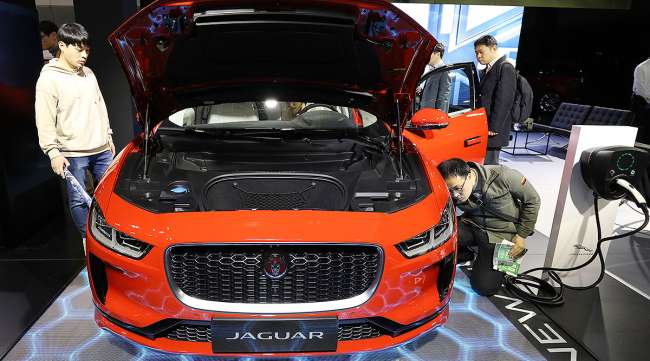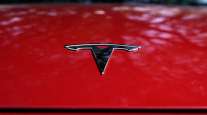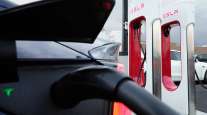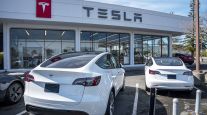German Electric Carmakers Pose Threat to Tesla

Elon Musk started Tesla Inc. with a goal of accelerating the switch to electric cars by about a decade.
That wish is now catching up with him. Starting with Jaguar’s I-Pace crossover and later this year Audi’s Q6 e-tron, virtually every major carmaker is rolling out stylish, sporty electric vehicles in the mold of his Models S, X and 3. Unlike Tesla, they have roughly a century of experience launching models every few months and can spread development costs across a broad portfolio.
“The vehicles I’ve seen are far superior to anything Tesla has,” Mike Jackson, chief executive officer of U.S. vehicle retailer AutoNation Inc., said on an earnings call May 1, referring to German carmakers’ electric lineups. “They are in a massive pivot and shift away from diesel investment into electrification in both pure electric and plug-in hybrid.”
NIKOLA SUES TESLA: Claims truck design infringes on U.S. patents
While the unprofitable California-based carmaker, reporting first-quarter earnings later May 2, has welcomed competition, it’s coming at a tumultuous time. Production issues for the less expensive Model 3 — the key to bringing electric vehicles to the masses — and the company’s cash burn will be the main issues for Tesla’s fervent believers and detractors to chew on. The company burns through more than $6,500 every minute, according to data compiled by Bloomberg.
Tesla reported quarterly revenue May 2 that beat analyst estimates and said it produced the Model 3 at a rate of more than 2,000 units for three straight weeks in April. Tesla forecast that it will generate cash in the second half of this year. The company is on track to make 5,000 of the sedans a week in about two months, according to a letter to shareholders May 2.
While Jaguar’s I-Pace SUV has been available for order since last month, Tesla’s stiffest challenge will come from Germany. A phalanx of fossil-free competition is heading for dealer showrooms — from Volkswagen’s I.D. family, aimed at the mass market, to the Mercedes EQ C crossover and Porsche’s Mission E, both coming next year. Porsche last week upped its forecast, saying sales of plug-in and electric cars would make up half of total deliveries by 2025.
Even so, Tesla is set to remain a force in the electric vehicle market, according to IHS Markit. It’s persevering, and doesn’t show any sign of letting up, according to Stephanie Brinley, an analyst with the researcher.
“Tesla has a good starting point, and new competition doesn’t negate Tesla,” she said.




